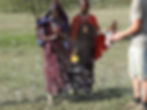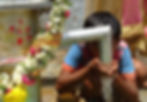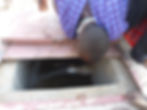Rural populations worldwide search long distances and rely on open source surface water for drinking, cooking, washing and everyday living
Three out of four people in developing countries live in rural areas, but many of them do not have access to potable water near their homes. Water is essential for many reasons including domestic use, subsistence farming and small entrepreneurial businesses. Allowing access to clean water to a community desperately in need is vital for economic development and poverty reduction because it sustains the livelihood of vulnerable rural people to meet their rising resource needs. This is why Bridgit actively pursues and concentrates our efforts to the most impoverished areas, and our aim when providing a water system focuses on non-existent water infrastructure.
Over the past few decades, water use has increased, and water availability is falling to crisis levels in many places. As a result, over one billion people lack safe water and three billion lack sanitation; 80% of infectious diseases are waterborne, killing millions of children yearly, according to World Bank. Facilities are under strain in towns and cities, and the springs and wells that rural communities rely on are primarily used up. High demand and poor management lead to shortages of clean groundwater, which has worsened with the advent of the COVID-19 pandemic.

Accessibility Improves Community Wellbeing
Our programs reduce the distance to clean, safe water to an average of 300 to 500 metres closer to rural community homesteads which improves community wellbeing.

Community Health Improves
Access to clean water reduces the incidence of water-borne illnesses such as typhoid, diarrhoea, dysentery and cholera, especially among children under 12 years. Young children die from dehydration and malnutrition, resulting from diarrheal diseases that could be prevented by clean water and proper hygiene.

Household Economies Improve
Community socioeconomic outcomes improve as household money is saved on medical expenses. An expected average of 2 hours is saved every day on water collection, especially by women, which can be used for productive work and economic development.

Education Outcomes Improve
There is an expected increase in school enrolment and retention among girls as the burden of water collection is relieved, improving education outcomes.

Gender Equality Improves
Access to clean water improves gender equality as women are relieved from travelling long distances to collect water. The burden of water collection is typically tasked to women and children, who can travel up to 4 hours every day, many kilometres from where they live. In addition, women are prevented from doing income-generating work or girls attending school, as most of their day is often spent walking miles for their daily water needs.
International aid is absolutely making a difference

Tanzania

Indian village well

Tanzania

Tanzania





